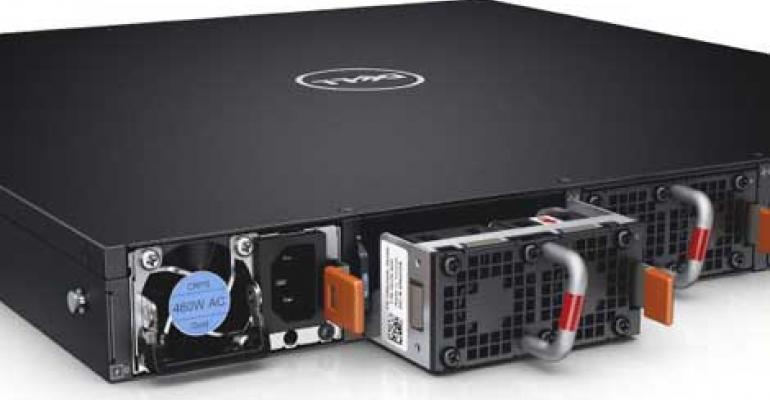Dell and Cumulus Networks have initiated a Software Defined Network startup called Midokura into their open and disaggregated data center network alliance. Midokura has an overlay network virtualization solution for OpenStack that will now be available together with Dell’s commodity hardware and the Linux-based network operating system by Cumulus.
There is a growing number of data center operators, such as telcos, cloud service providers, and to a lesser extent enterprises, who are interested in low-cost commodity network hardware that is not tied to proprietary software – the opposite of the full-solution model major network vendors have traditionally sold. There is also growing interest in being able to virtualize and automate network management capabilities, such as the ones Midokura's OpenStack SDN technology provides, to make networks more agile.
Dell’s first foray into the world of disaggregation between network hardware and software occurred in January, when it announced it would offer the Cumulus OS as an alternative to its own Dell OS software on two of its top-of-rack data center switches. In April, Dell added a third network OS option –the Switch Light Operating System by Big Switch Networks.
Earlier this month Juniper, previously one of the monolithic proprietary network vendors, took things a step further in the direction of open networking, announcing it would not only ship a commodity white box switch that would be open for use with any OS the customer desires, but also that it would contribute the box’s design to the Open Compute Project, the Facebook-led open source data center and hardware design initiative.
OpenStack SDN Built for Multitenancy
Midokura’s SDN solution is called Enterprise MidoNet. It is based on an open source SDN project the company started earlier this year, Midokura CEO Dan Dumitriu said.
Its strength is in its multitenant capabilities. The virtual network overlay, which runs on servers and network switches, logically separates applications in a private cloud environment or users in public clouds.
“Initially … we designed MidoNet for a multitenant public cloud use case,” Dumitriu said. But his team quickly saw that there was a growing market for multitenant virtual networks in the enterprise data center space as well.
The software uses network switches to do what they do best – reliably move packets. All network management functions are done at the edge of the network on x86 severs.
The solution uses Dell switches running Cumulus for non-virtualized workloads that have to stay on physical hardware.
In addition to OpenStack, Dell supports cloud architectures by VMware and Microsoft. The company works closely on OpenStack with Red Hat.
Dell Sharpens Focus on SDN, Open Networks
Dell has been placing a lot of focus on data center networking in recent years, and SDN and open networking are two big new areas of focus, Tom Burns, vice president and general manager of Dell Networking and Enterprise Infrastructure, said.
There are two Dell switches that can be used with Cumulus or Big Switch network OS software: the 10 Gig S48 and the 40 Gig S6000. The company is working to add a 1 Gig product to the open network portfolio in the first quarter of next year, Burns said.
Technologically, the company’s approach to SDN has been to ensure the least amount of disruption possible for the user. “All of our data center products today enable customers to go to SDN when they are ready to move to SDN,” he said. “We do not require customers to rip and replace, update software, or do anything from physical perspective.”
So far, open networking has not eaten into Dell’s traditional networking business, Burns said. Revenue from the sales of disaggregated switches – which a lot of customers are running in trials – is tiny, compared to overall Dell networking sales.
But, Dell expects this business to pick up over the next two years. “My goal is to bring these types of solutions to the masses as quickly as possible,” Burns said.





